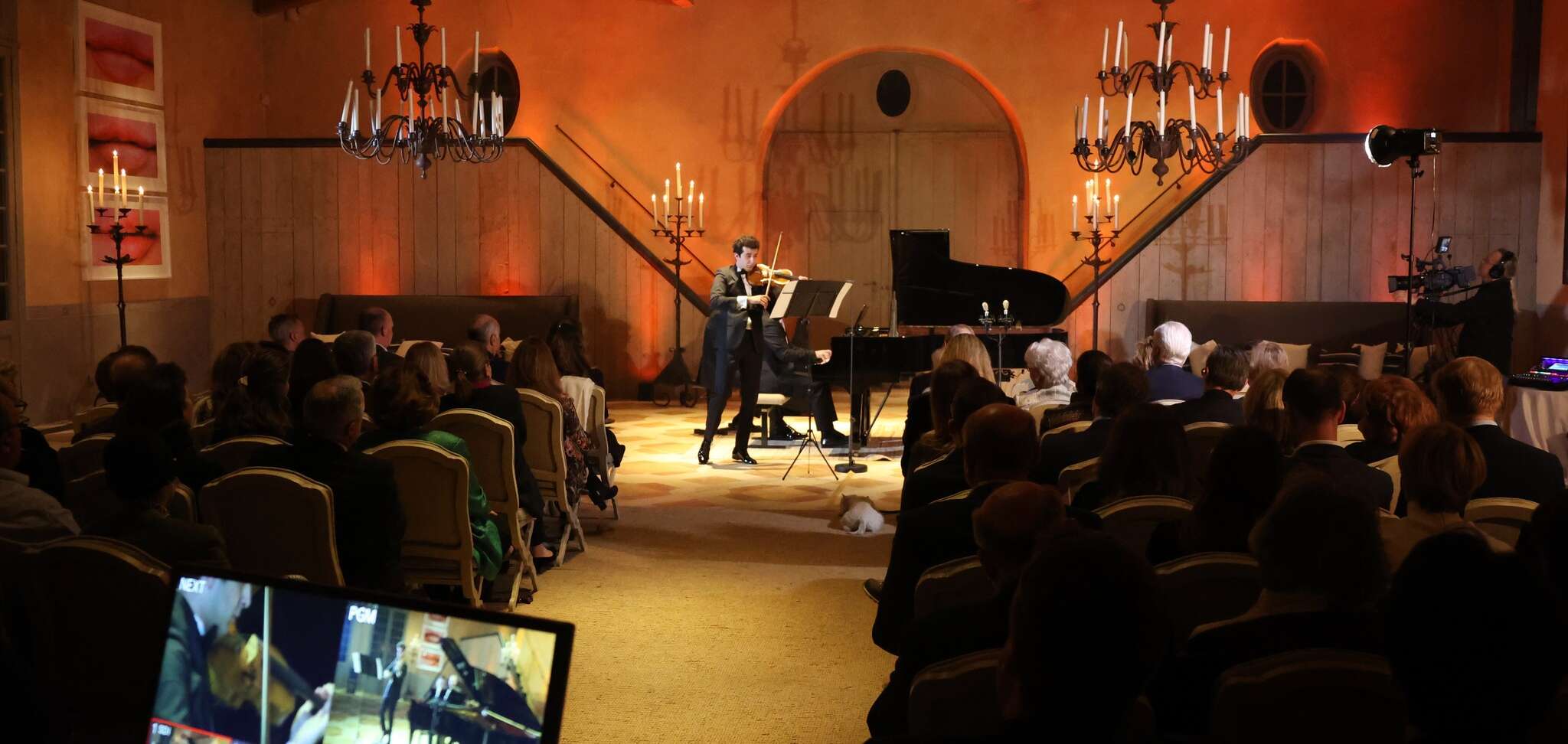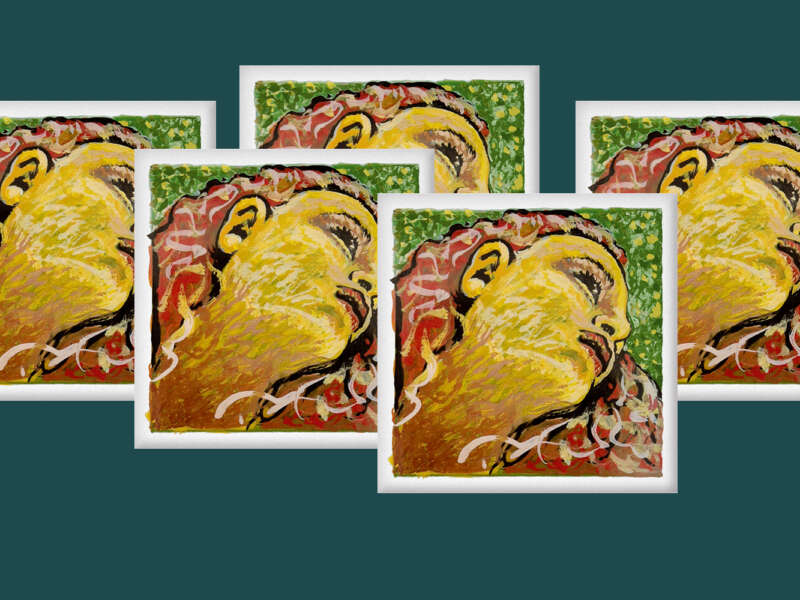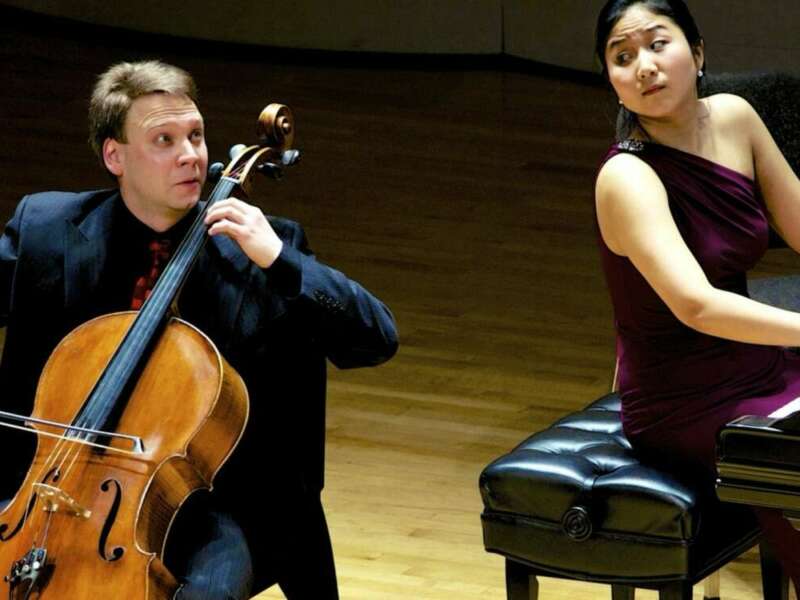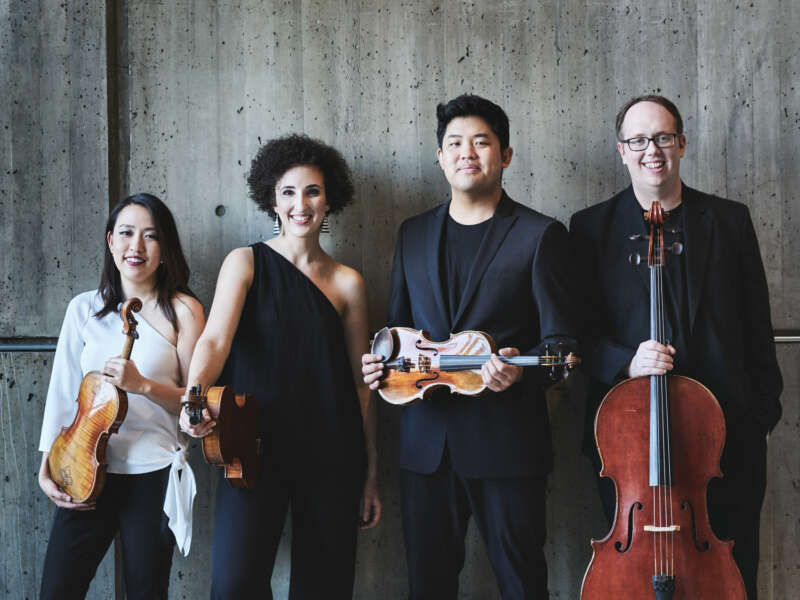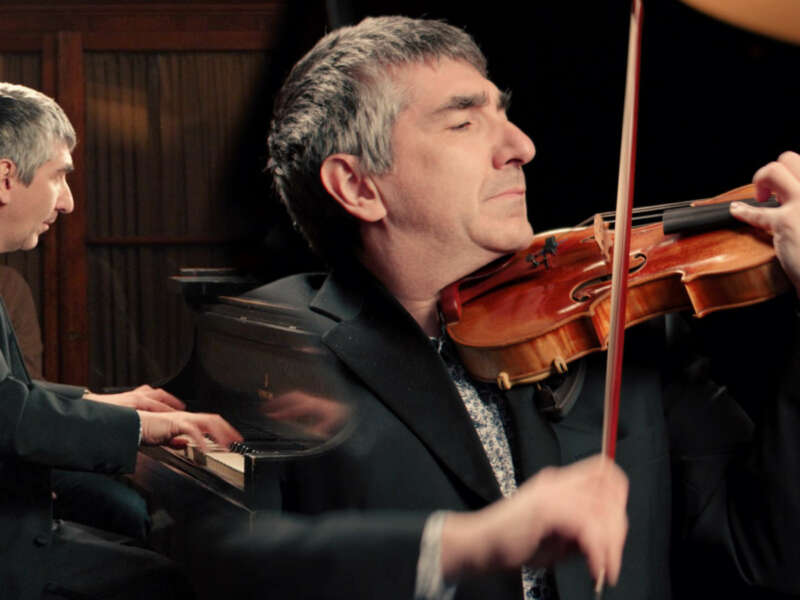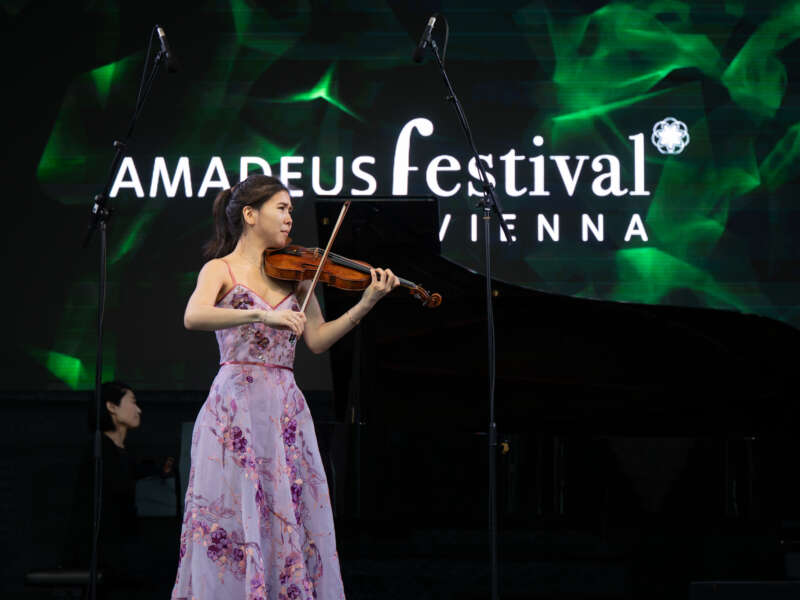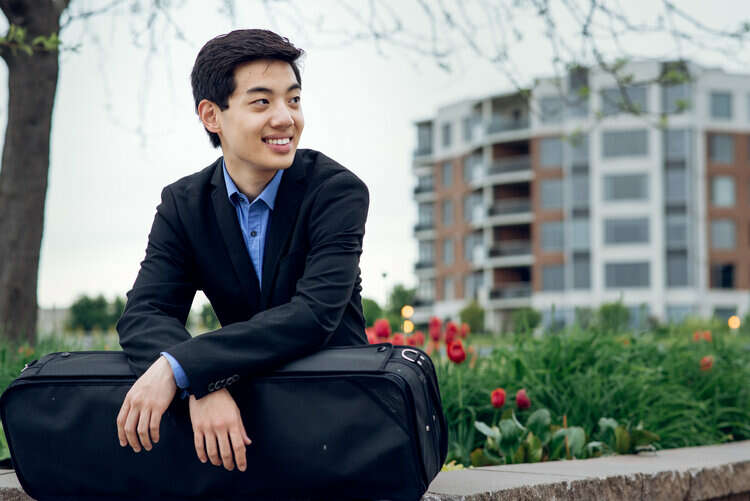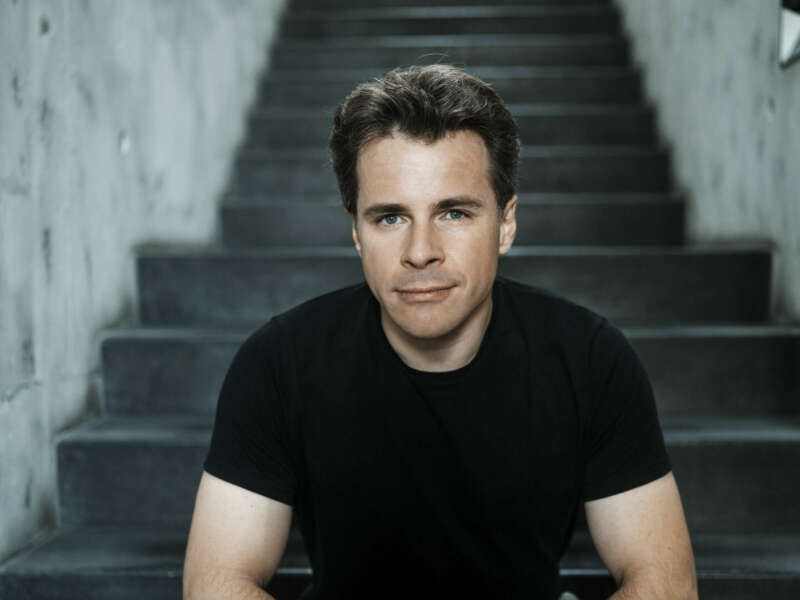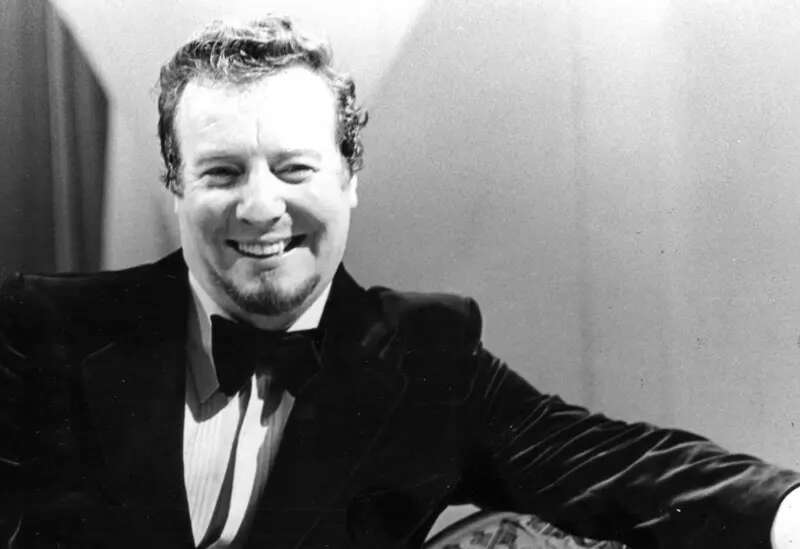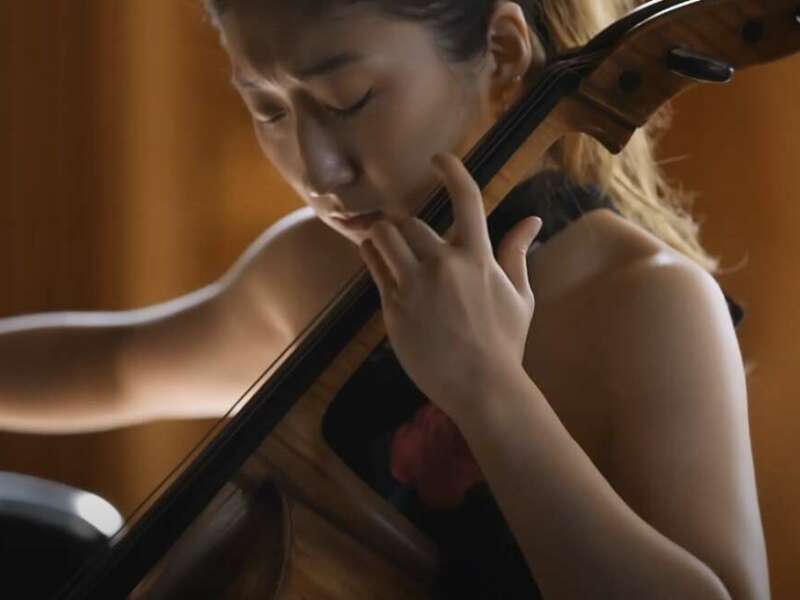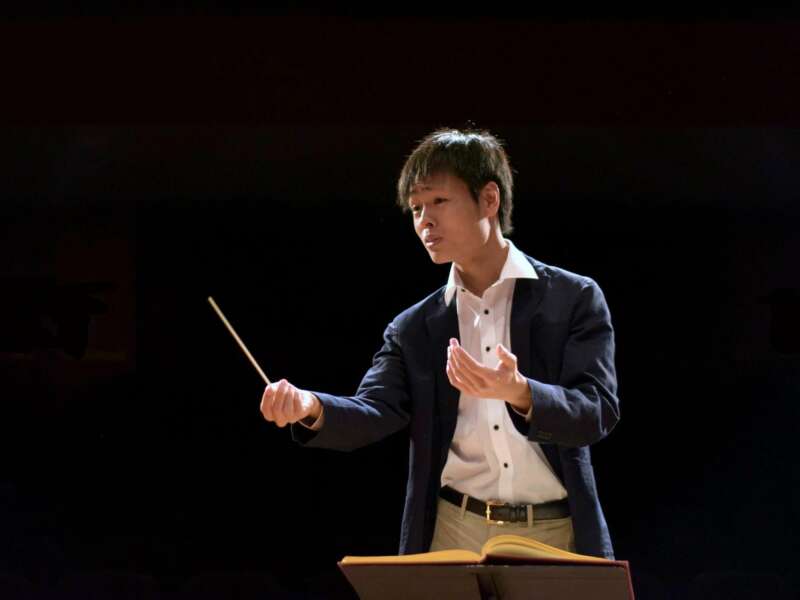Violinist Bilal Alnemr on the Benefits of Classeek's Ambassador Programme
With applications closing on April 17, the one-year career development program bolsters the audience, musical network, and skills of its young artists on track for a high-level career
Open to instrumentalists and composers, the Classeek Ambassador Programme admits those between the ages of 18 - 30 years. In addition to nominations by Classeek Ambassadors, there will be two spaces open to applicants from around the world, looking to pursue an international career in the classical music industry. There will be one space for instrumentalists, and for the first time, one space open to composers.
As one of Classeek's current Ambassador Programme artists, violinist Bilal Alnemr recently performed a concert at Classeek's Showroom.
We caught up with Bilal to learn more about his journey as a violinist and how Classeek has helped him grow.
Bilal, tell us about yourself, and where your love of the violin came from?
I believe that childhood makes such an imprint on our lives. Dreams are still allowed and the extraordinary exists. When I grew up in Damascus, my interest in the violin started with a toy with four buttons playing different melodies. This toy grew with me, and over time, strings replaced the buttons.
I have always been passionate about the fusion of voices that the violin can produce. It allowed me to travel everywhere without even opening the front door. I still remember spending much of my childhood by candlelight because the electricity was only on every five hours. I thought it was fabulous because the darkness felt like a concert hall filled with thousands of people waiting for the spotlight to shine on the soloist when he appeared on stage. I would borrow my father's lighter and a small battery-powered lamp that we used when the electricity was cut. I taped it to the ceiling in the middle of my room and turned it on. I remember playing Mendelssohn's violin concerto four times in a row without stopping. For four hours, I was like a whirling dervish who was asked to dance.
The kitchen was my favorite place to play the violin. I had seen a documentary on Stradivari violins and only the resonance of the kitchen, the bathroom, or the entrance of the house could create the sound of a Stradivari violin in Syria. Outside, you could hear the laughters and screams of all the children who were playing football, games, and marbles. But I, behind the door, was happy with my Stradivarius.
We see that you were originally self taught — can you tell us about this process? How did you go about learning and at what stage did you progress to teachers and conservatory learning?
When my father bought me a 4/4 hand-made violin, the Iraqi luthier Nabil Hani gave me a DVD of Maxim Vengerov performing the Tchaikovsky violin concerto when he was 16 years old as a present. I used to play the DVD continuously in my room since then. I studied with it, practiced with it, and attempted to imitate the sound and movements as closely as I could. I didn't have internet access at the time, and western TV channels were forbidden. My father used to climb onto the roof after dusk to switch the satellite so I could get to the Mezzo Channel. I had a USB key that I used to record every concert. My father would set the satellite back to its original position in the early morning, and I would watch the performances during the day, imitating the performers and learning about western music and repertoire.
When you only have the sound of the violin and a few tools for producing the sound, everything becomes very new, as you don’t have any elements of comparison with another point of view. I remember repeating the first note of the Beethoven F Major Romance for three hours non stop, without noticing the time passing. I was trying to discover and understand how I can produce this note with all its different possibilities of sound, and this is how I practiced every other piece I wanted to learn.
When I moved to Aix-en-Provence in France at the age of 14, I began studying the violin with professor Sophie Baduel to whom I owe all my gratitude. That was the start of my academic journey.
What and who have been your greatest inspirations throughout your career to date?
The violin was my only inspiration in Syria. I had my imaginary window of hope under very poor and limited conditions. As I moved to Europe on my own and the Syrian war broke out, my teachers became anchors, and gave me the strength to continue my musical journey. Renaud Capuçon has been very generous to me, providing me with a violin and giving me the chance to perform with him and other outstanding artists including pianist Hélène Grimaud. Another key figure in my musical development is Maestro Daniel Barenboim. I met him in 2018 as I auditioned for the Barenboim-Said Akademie and West-Eastern Divan Orchestra. Being in regular contact with him has been an ongoing source of inspiration; he has not only been a musical mentor, but his projects have also given me the desire to undertake projects connecting music with the notion of peace and use music as medium of dialogue between cultures.
How did you become connected with the Classeek’s Ambassador Programme?
After having recorded the Einzelsätze for violin and orchestra by Mozart with the ORF Wien and conductor Thomas Zehtmair, Thomas Pfiffner, director of the Orpheum Foundation, recommended me to Sonia Simmenauer in Berlin. Sonia is one of the Classeek ambassadors, and this is how I became member of this program.
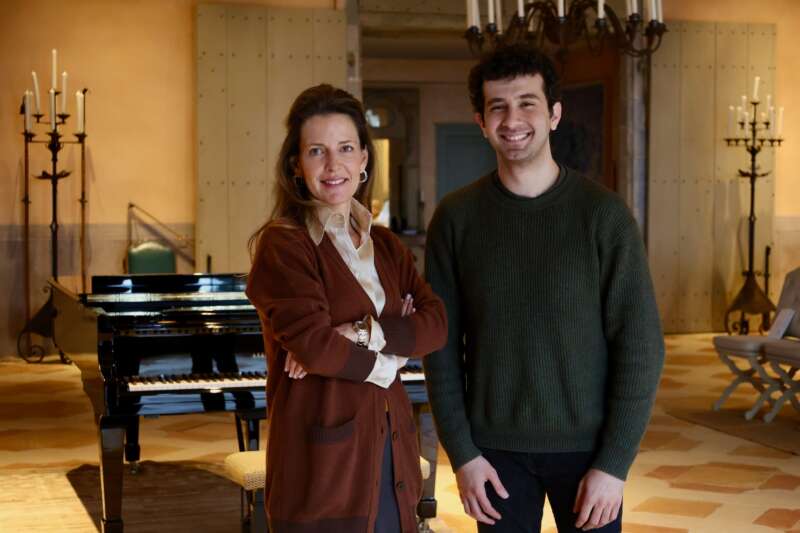
Bilal with Classeek's CEO and founder, Catarina Amon
How has the Classeek’s Ambassador Programme helped your career over the past year?
Being part of the Classeek program over the past year has been the perfect support for me, particularly, in this transition period of my professional journey. I have lived an uncommon path, and the attention and trust that Classeek has offered me could not be more valued.
What have you enjoyed most about the tailored program?
The communication with people who understand and care about an artist’s needs is what I have enjoyed most about this program. I had been coached by Sonia Simmenauer for the last year, and it helped me understand how to be centered in a chaotic and fast-paced world full of stimuli and stress.
In addition to performing, you co-founded UGARIT. Can you tell us more about this initiative and its mission?
Ugarit was an ancient port city in northern Syria discovered in 1929 by French archaeologists. They have discovered the oldest written alphabet in the 15th and 14th centuries B.C. J.-C. and over 36 songs engraved in cuneiform script on clay tablets, which were called "Harranian Songs." These songs date back to 1400 BC. J.-C. and were composed as an invocation to the gods. One of them has been recovered almost entirely, making it the oldest known example of musical notation in the world.
I wanted to create the Ugarit association, because of this connection between this golden musical history of Syria and France. Its mission is to help every exiled artist who has a passion but cannot act on it due to conditions of poverty and / or war. We have already commissioned one piano trio and one solo violin piece to the Syrian composer Nadim Hussni exiled in Poland for the last 17 years.
What’s next for Bilal?
In July 2024, the second edition of my festival “ Ugarit-en-Provence" will take place in Vauvenargues, the French provencal village who hosted my family when they fled the Syrian war in 2015. It will feature a great program with outstanding artists that I cannot wait to share with you all soon. Also, thanks to Classeek, I will be playing a pre-concert for Maxim Vengerov in Geneva’s Victoria Hall on the 30th of May 2023. It is a special reunion for me and a realization of my childhood dream.
What are your dreams and plans for the future?
My overall dream is to continue building a bridge between cultures and connecting people through music, while also finding my own musical path as a soloist. I always aim to perfect my skills in order to serve the music, and I would love to one day play the solo partitas and sonatas by J.S.Bach on the podium of Palmyra as a symbol of peace.
july 2025
august 2025


